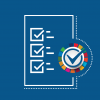News
Displaying Results 1 - 11 of 11
The shift towards the digital exchange of trade data and documents can improve efficiency, reduce costs, enhance transparency, and enable better accessibility to and analysis of data. Furthermore, it has the potential to foster greener and more inclusive trade. Yet, efforts to digitalize data and…
Recent data from the UNCTAD Global Trade Update reveals a promising outlook for global trade. Following a decline in the last year, the volume of world merchandise trade is forecast to increase by 2.6% in 2024 and 3.3% in 2025. One of the most notable trends in 2024 is the significant rise in…
In today's data-driven world, organizations face the challenge of efficiently integrating and making sense of vast amounts of diverse data. Semantics and semantic interoperability provide a solution by enabling the meaningful interpretation and integration of data across heterogeneous systems. To…
As one of the United Nations regional economic commissions, UNECE has a key role to play in helping countries with economies in transition to better integrate into the global economy. UNECE is at the forefront of setting international standards on cross-border procedures, identifying regulatory and…
Standards touch nearly every aspect of our daily life through all the products that we use and consume each day (for example, mobile phones, vehicles, cleaning products, personal protection equipment, toys, and others). When they are produced or introduced on the market, products are checked for…
Technologies can enhance commerce if clear international standards are in place to ensure that their use is harmonized between trading partners, and if there is regulatory coherence among countries.
Ways in which digital and green transformations can improve quality infrastructure for trade in…
Standards are in everything that surround us. Just the mobile phone in your pocket uses hundreds of standards, from the cellular network and the cable connectivity to physical elements such as the processing chips and the LED screen, not to mention security testing and the process design. We rely…
COVID-19 has significantly changed the way UN/CEFACT works. As the focal point within the United Nations Economic and Social Council for trade facilitation recommendations and electronic business standards, UN/CEFACT typically convenes experts twice per year to a week-long Forum to discuss current…
With the consequences of COVID-19 still unfolding, one area of major disruption has been to global food systems, resulting in significant increases in food loss and waste.
Today, the first ever International Day of Awareness of Food Loss and Waste, is a wake-up call. We must access and make…
Risk is a part of our everyday lives. When we wear a helmet to ride a bike, for example, we accept a small inconvenience to reduce the risk of a fall or an accident. When a homeowner decides to retrofit their house, they incur a cost to shield against an earthquake or a flood. Faced with the COVID…
Every year we lose about 14% of the food produced before it is sold, and this does not even include the food never harvested. Even more is wasted at retail and consumer levels. At the same time, over 800 million people worldwide suffer from hunger, while food loss is a major contributor to CO2…









